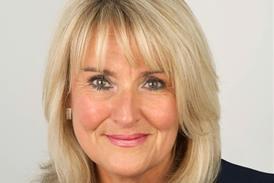- Stroke Association concerned that “high quality care” should continue
- Guidance backs use of telemedicine and use of other consultants
- Some stroke units could be relocated away from hospitals with A&E
Stroke victims could be admitted to district general hospitals which do not normally provide such care if specialist units do not have the beds or staff as a result of the coronavirus pandemic.
Guidance published by NHS England states that freeing up beds usually occupied by stroke patients to care for those suffering from coronavirus is “paramount”.
The Stroke Association has said it is vital “high quality care” continues to be provided – and that they have access to thrombolysis, where clots blocking blood vessels are “dissolved,” during this time.
The move was proposed alongside “virtual consultant cover” to help specialist stroke units remain open if consultant staff are on sick leave. The guidance – which was updated on 16 April – suggests “shadow rotas” of additional consultant staff should also be set up where services have limited consultant cover.
Telemedicine use should be encouraged to allow remote review of patients in emergency departments who may need thrombolysis, and a regional telemedicine rota could provide continuity of service.
Stroke medicine has been the subject of significant consolidation in recent years, as evidence built that patients where best cared for specialist units even if they had to travel further to reach them. As a result, many DGHs no longer regularly treat the most seriously ill stroke patients.
The guidance said reducing the number of stroke beds to accommodate non-stroke patients was “paramount” but it was crucial to ensure stroke patients had access when needed.
Charlotte Nicholls, head of policy at the Stroke Association, said the guidance was understandable as a temporary measure, but added: “It is essential that any changes to the stroke pathway maintain high quality care for stroke patients, and remain committed to prioritising thrombectomy, mechanical removal of clots, and thrombolysis treatments for those eligible.
Asked how thrombolysis – normally delivered by specially trained nurses – would be delivered in units which do not normally admit stroke patients, Dr David Hargroves, GIRFT national clinical lead for stroke, replied: “While there is currently no need to use them, and every part of the country will be working to ensure that remains the case, this guidance – drawn up and endorsed by expert clinicians – provides contingency plans to ensure people will still have access to stroke experts, brain scanning and emergency interventions even if coronavirus puts unprecedented strain on local ambulance services.”
Downloads
Source
Guidance from RCP and NHS England
Source Date
April 2020



























7 Readers' comments